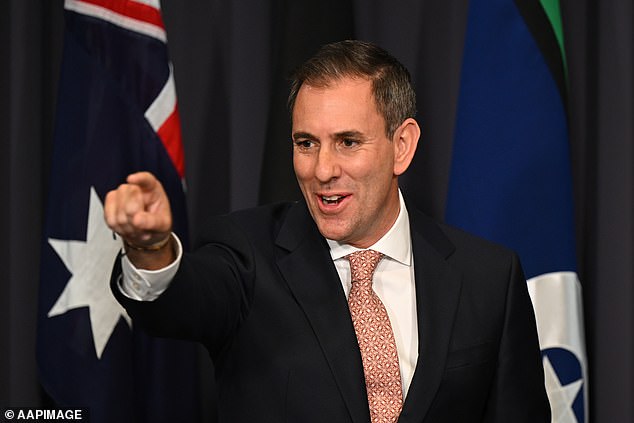How Albo & Co. Are Evading the Mega Tax—and Overlooking Its Blaring Flaws
- A new tax will be imposed on paper profits within superannuation accounts.
- Must begin making payments once the balance hits $3 million.
- Senior legislators who have served for a long time will not be required to make payments until they retire.
The Prime Minister has exempted both himself and other recipients of substantial parliamentary pensions from the new superannuation tax that applies to everyone else.
The fresh taxation on uncrystallized super profits mandates immediate payment once individuals hit the taxable limit for everybody else. However, not so with our Albo, who has the option to postpone his payments until post-retirement.
This is a typical scenario where politicians establish different rules for themselves than they do for the general public.
Due to the impending new legislation, individuals with a super balance exceeding $3 million will be required to pay taxes on unrealized gains annually. This might necessitate selling portions of their assets to cover the resulting tax obligations.
The Prime Minister and other beneficiaries of the traditional parliamentary super scheme are excluded from this provision.
They only need to make this payment upon retiring and being eligible to receive the funds, at which point it will be assessed with a lower rate. inflation a rate comparable to the one for government bonds.
The opposing side has charged the Labor Party with hypocrisy, a claim that holds true.
Nevertheless, several Liberal Members of Parliament continue to frequent Parliament and they too are eligible for the previous pension plan, thus benefiting similarly to Albanese.

This encompasses new Liberal leader Susan Ley, who joined Parliament in 2001, two years prior to the abolition of the previous parliamentary pension scheme for newcomers implemented by John Howard.
A representative for Treasurer Jim Chalmers attempted to deflect criticism with vague and confusing statements aimed at justifying the favorable tax treatment for the Prime Minister and other political allies. However, it’s clear that Chalmers has included a specific clause in the new legislation designed to benefit those close to him, including his superior.
The new tax goes before parliament when it returns towards the end of July.
Of course the decision not to force holders of parliamentary pensions to pay the on-paper profits tax immediately is a sound one, because they can’t sell down that pension to cover the tax bill in the same way a standard super holder can.
MPs including Albo would be forced to sell other assets to cover the debt, which is a big ask.
But that’s precisely why the new tax is bad policy, and why experts have labeled it ‘flawed’.
Nevertheless, Labor continues to move forward with the plan despite growing apprehensions from various sectors over the past few weeks.
Even former Treasury chief Ken Henry and ex-RBA Governor Philip Lowe have voiced their worries.

Although Labor claims that the new tax will initially affect only a select few taxpayers who have superannuation accounts exceeding $3 million, this situation won't last. The non-indexed application rate means that progressively more Australians will find themselves subject to this levy as time goes on.
According to AMP, by the time Generation Z reaches retirement age, one out of every two individuals may have to pay taxes if the $3 million threshold isn't adjusted. However, Labor states they do not intend to make this adjustment.
The treasury predicts it will generate approximately $40 billion from this tax over the next ten years, with a significant portion expected to come later in that period when a larger number of individuals will be affected.
Critiques of the new tax extend further than just the absence of indexing.
It has similarly been noted as being tougher on women since they typically contribute less to their superannuation during periods when they leave the workforce to raise children, yet they tend to live longer than men, thus becoming more dependent on those savings.
When a man passes away before his female partner, she typically receives the transfer of his superannuation benefits into her account. If this addition causes her total holdings to exceed $3 million, she may face a new 30% tax on the amount exceeding that threshold.
This has led some tax professionals to refer to it as a 'widow tax.'

Agriculturalists and individuals utilizing their superannuation for property investments will face significant challenges as well since these illiquid assets cannot be easily divided and liquidated to cover taxes. Should the perceived value decrease in future years, unfortunately, the tax liability remains unchanged.
As demands for reforming the new tax continue to escalate, Labor has not yet shown any signs of revisiting its significant shortcomings.
Starting from July 1st, the newly formed Senate will come into effect, with Labor receiving backing from the Greens—who will hold the decisive vote independently—to implement this legislative alteration.
Do not anticipate any efforts for increased indexing from these sources. In fact, the Greens aim to have the tax apply starting at $2 million and might manage to negotiate this, despite Labor firmly standing behind the $3 million limit they campaigned on.
Read more
Post a Comment for "How Albo & Co. Are Evading the Mega Tax—and Overlooking Its Blaring Flaws"